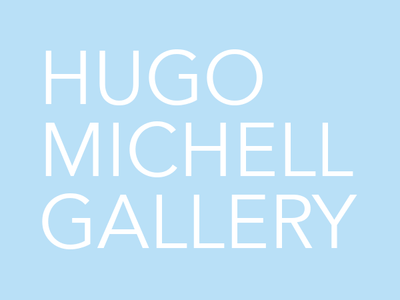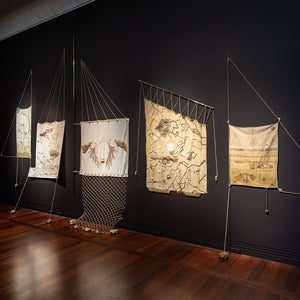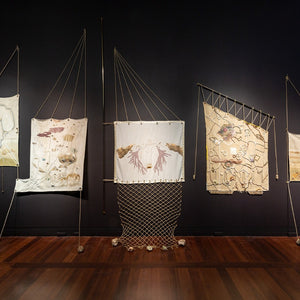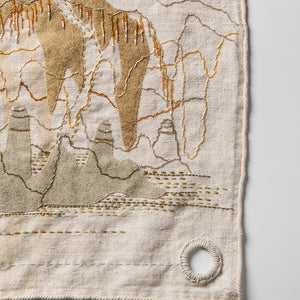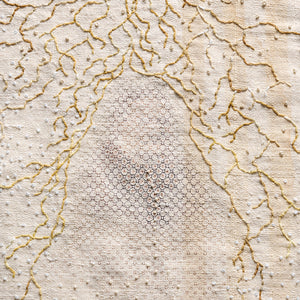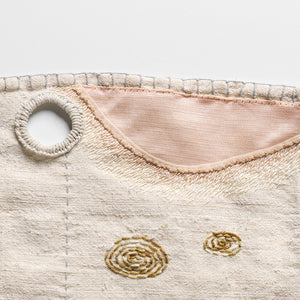ADELAIDE BIENNIAL OF AUSTRALIAN ART: FREE/STATE
2022
'Sera Waters: sailing to a different future' by Patrice Sharkey
As some of the earliest colonial settlers to the newly founded state, her ancestors participated in pioneering industries that accelerated the rate of settlement, land clearing, building and infrastructure. (One family line established a cheese factory in Stoney Creek in the 1880s, while another, based out of Port Adelaide, delivered supplies and building materials along the state’s coastline via sailboat.)
It is with the knowledge of this family history and intergenerational complicity in the colonial project that Waters’s new work crafts tales of land use specific to South Australia from the arrival of Europeans. The extent of her research is vast and she has identified several distinct impacts that colonial practices have had on the environment. This includes the drainage of the state’s South-East region, whereby the wetland-dominated landscape was converted into pastoral lands; the widespread decimation of oyster beds, with oyster shells converted into concrete to build the new colony; the introduction of invasive species; and the sustained extraction of various natural resources.
The presentation of Waters’s research in a Biennial whose title invokes the promise of South Australia as a free settlement is important, in that it retells local history in a way that reveals something of what has been lost. Before the British arrived, Aboriginal communities cared for Country by only using the land for the necessities of life – shelter, water, food, weapons. They never overused or damaged it. Waters’s ‘unearthings’ speak to the ways by which members of settler colonial families can begin to understand their role in and take responsibility for the dispossession of Aboriginal peoples. To put this another way, when we talk about freedom, we must take into account who the beneficiaries of this ‘freedom’ are and its cost.
In form, Waters’s research is presented to us through embroideries made on a series of sails, hung and pulled taut by rope.
The full version of this essay by Patrice Sharkey is published in Free/State.
